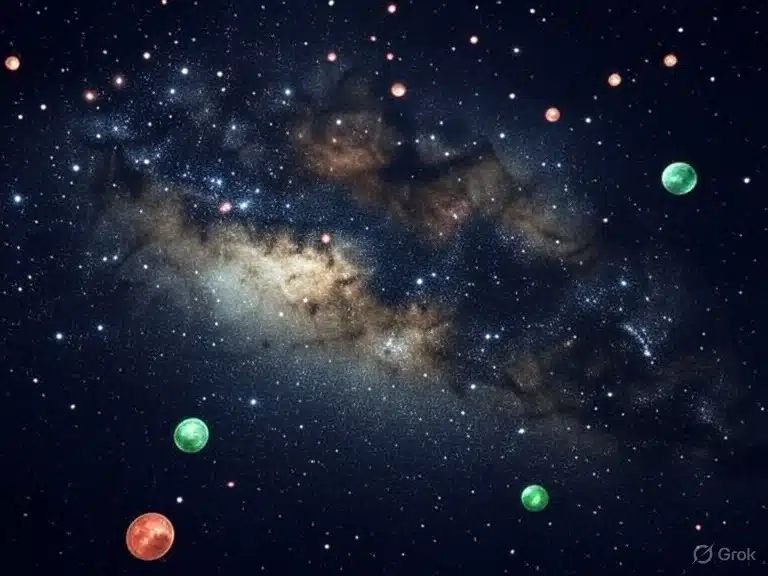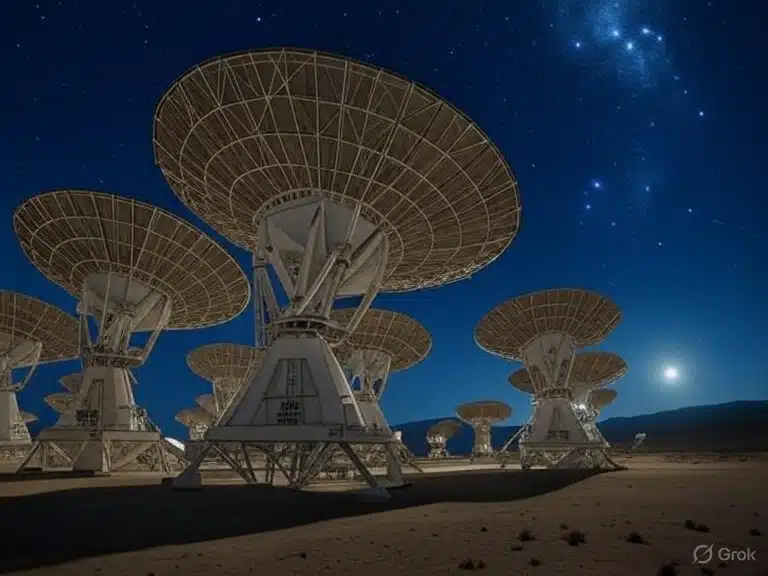The universe is vast, ancient, and filled with billions of stars and planets. Modern astronomy suggests that many of these planets lie in habitable zones where conditions for life could exist. So if life should be common in the cosmos, why haven’t we found it yet? This puzzle is known as the Fermi Paradox, and it remains one of the most thought-provoking questions in science.
Origins of the Fermi Paradox
The paradox is named after physicist Enrico Fermi, who in 1950 famously asked: “Where is everybody?” During a casual conversation about UFOs and extraterrestrial life, he noted the contradiction between the high probability of alien civilizations and the lack of evidence for their existence.
In simple terms:
- The galaxy is billions of years old.
- Even at slow speeds, advanced civilizations could theoretically colonize the Milky Way within a few million years.
- Yet, we see no alien megastructures, no verified spacecraft, and no signals.
This gap between expectation and reality is the heart of the paradox.
Why We Expect Life Everywhere
Recent discoveries strengthen the idea that life should be abundant:
- Exoplanets: NASA’s Kepler mission revealed thousands of planets, with many in the “Goldilocks Zone” where liquid water could exist.
- Organic Molecules: Building blocks of life have been found on comets, asteroids, and even the atmosphere of Saturn’s moon Titan.
- Resilient Life on Earth: Microbes survive extreme heat, radiation, and deep-ocean vents, showing life’s adaptability.
If life thrives in harsh conditions here, it seems logical it could also thrive elsewhere.

Possible Explanations for the Paradox
Scientists have proposed dozens of theories to explain the silence. Here are the leading ideas:
1. We Are Early
Perhaps intelligent life is rare, and humanity is among the first civilizations to emerge. If so, we might be witnessing the galaxy at an early stage before others appear.
2. The Great Filter
This theory suggests that somewhere in the process — from chemistry to intelligent life to advanced civilizations — there is a nearly insurmountable barrier. If the Great Filter lies ahead of us, it might mean civilizations often destroy themselves through war, climate collapse, or technology before they can spread across the stars.
3. Aliens Are Too Far Away
The universe is unimaginably vast. Even if life is common, civilizations may be so far apart that communication is nearly impossible. Radio waves, for instance, weaken over distance, making alien signals almost undetectable.
4. They’re Here, But We Don’t Recognize Them
Another idea is that alien life may not resemble anything we expect. They could be based on silicon rather than carbon, live in plasma clouds, or exist in dimensions beyond our perception. To us, they might appear invisible or indistinguishable from natural phenomena.
5. Civilizations Choose Silence
It’s possible advanced civilizations deliberately remain quiet. The “Dark Forest Theory,” inspired by science fiction, suggests that broadcasting your location could invite danger. To survive, aliens might stay hidden — just as we might want to.
The Search for Signals
Organizations like SETI (Search for Extraterrestrial Intelligence) have scanned the skies for decades, listening for radio signals from intelligent life. While intriguing anomalies such as the Wow! Signal of 1977 exist, none have been confirmed as alien communication.
Now, new projects like Breakthrough Listen, funded by Stephen Hawking and others, are using advanced telescopes to scan millions of stars for signs of life.
Meanwhile, astronomers search for technosignatures — signs of technology such as giant energy-harvesting structures or unusual light patterns around stars.

Could We Be Alone?
One unsettling possibility is that we are truly alone in the universe. If the conditions that led to life on Earth are extremely rare, humanity might be a cosmic accident. While lonely, this idea also makes our existence uniquely precious.
Alternatively, civilizations may exist but live on a different timescale. They might have risen and fallen millions of years ago, leaving no trace by the time we arrived. Or perhaps others will rise millions of years after we are gone.
Why the Fermi Paradox Matters
The paradox is more than a curiosity — it forces us to confront deep questions:
- Is intelligent life fragile and short-lived?
- Should humanity be cautious about broadcasting our presence?
- If civilizations self-destruct, can we avoid the same fate?
It also drives scientific progress, inspiring astronomers, physicists, and philosophers to explore life’s possibilities in the universe.
Conclusion: A Mystery That Defines Our Place in the Cosmos
The Fermi Paradox remains unsolved, balancing between optimism and caution. On one hand, the vastness of the universe suggests life must exist elsewhere. On the other, our failure to find evidence challenges our assumptions about intelligence, technology, and survival.
Perhaps the silence is temporary. As our telescopes improve and our exploration expands, we may one day confirm the existence of another civilization. Until then, the paradox reminds us that Earth is our only known cradle of life — and we must protect it as we search for answers in the stars.

